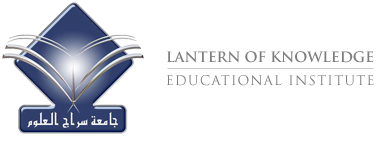Science Subject Policy
Importance & Aim:
The study of science fires pupils’ curiosity about phenomena in the world around them and offers opportunities to find explanations. It engages learners at many levels, linking direct practical experience with scientific ideas. Experimentation and modelling are used to develop and evaluate explanations, encouraging critical and creative thought. Pupils learn how knowledge and understanding in science are rooted in evidence. They discover how scientific ideas contribute to technological change-affecting industry, business and medicine and improving quality of life. They trace the development of science worldwide and recognise its cultural significance. They learn to question and discuss issues that may affect their lives, the directions of societies and the future of the world.
Curriculum:
At LoK we deliver a broad and stimulating Science Curriculum, which is selectively sequenced and enriched to build pupils’ ability to experience Science in the real world.
- A bespoke sequence of units taken from the National Curriculum which intertwine the three strands of Science- Biology, Chemistry and Physics.
- Opportunities to build and stretch beyond the curriculum and provide opportunities to see how science is utilised and discussed in contemporary society.
- Make links between science in the classroom and the science in pupils’ lives.
Broadly the subject covers 4 areas:
- Biology – Pupils explore the structure and functions of various living organisms from simple microbes to complex humans and plants. Pupils will explore cycles and energy in different biological processes, as well as relationships in an ecosystem. They will delve into genetics, the process of inheritance and evolution.
- Chemistry – Pupils explore in depth the nature of matter, the Periodic Table, materials and their many properties. Pupils will explore ideas about energetics and chemical reactions as well as learn about the earth and the atmosphere and effects of human activity.
- Physics – Pupils explore the topic of energy in depth. They learn about matter, forces and motion. Pupils’ discuss waves and their properties, electricity and electromagnetism and their many uses.
- Investigative Skills – Pupils’ develop practical skills by working scientifically. They learn to articulate scientific concepts clearly and precisely. Misconceptions are remedied and the nature, processes and methods of Science are developed. Pupils’ develop their understanding of the uses and implications of Science today and for the future. Pupils’ accurately read and interpret technical terminology and see connections between subject areas and become aware of the big ideas underpinning scientific knowledge and understanding. They are taught to challenge received wisdom by taking into account new evidence and ideas. Pupils also learn to use problem solving skills and numeracy within scientific concepts.
Assessment methods:
Each of the above area is assessed using a variety of methods some of which are formative (continuous) e.g. in class feedback of answers, questioning in lessons, class work, homework, etc. Some methods are summative e.g. half yearly tests, end of year tests, etc.
Pupils take public exams (GCSE) for core and additional science (two GCSEs) during KS4 (Years 10 and 11). Some pupils are given the opportunity to take up triple science which gives them one additional GCSE.
Out of class learning:
Educational trips are organised for external learning to a variety of places. Some of the possible trip destinations include; BMW mini production plant, Science museum, IMAX theatre, Royal Observatory, Epping Forest.


